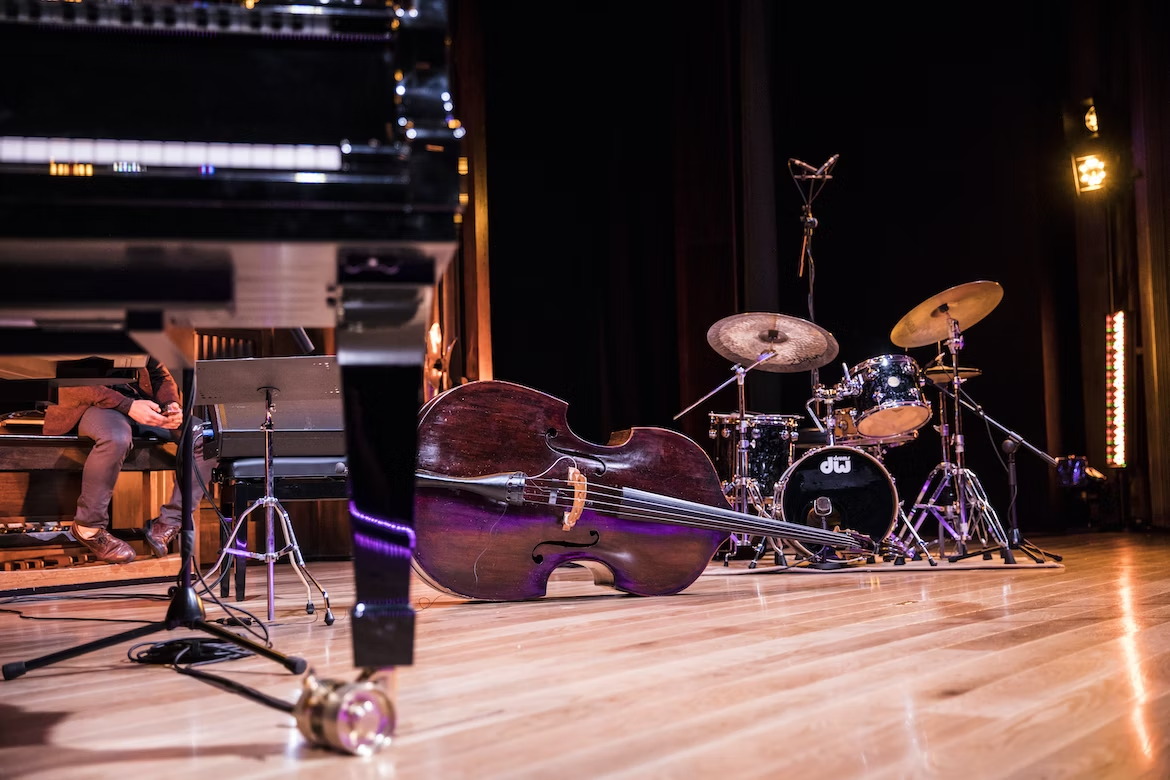Music has an incredible ability to touch our hearts, stir our emotions, and bring people together. It is a universal language that transcends boundaries and cultures, allowing us to connect on a deep level. If you have ever dreamed of entering the world of music, expressing yourself through melodies, and sharing your unique creations with the world, now is the perfect time to embark on that journey. In this blog post, we will provide you with six invaluable pieces of advice to help you navigate the path of becoming a musician. Whether you’re a complete beginner or someone looking to take your musical skills to the next level, these tips will set you on the right track. So, let’s dive in and explore how you can unleash your musical potential and experience the joy of creating and sharing music with others.

Connect With The Right Teacher
A crucial step in your musical journey is finding the right teacher who can guide and mentor you along the way. The team behind musicion.com says that a skilled and supportive teacher can make a world of difference in your progress and understanding of music. Here are some tips on how to connect with the right teacher:
Define Your Goals: Before searching for a music teacher, take some time to define your musical goals. Do you want to become proficient in a specific instrument? Are you interested in learning a particular genre or style? Understanding your goals will help you find a teacher who specializes in the areas that align with your aspirations.
Research and Recommendations: Begin your search by conducting thorough research. Look for music schools, conservatories, or private teachers in your area. Seek recommendations from friends, family, or local musicians who have had positive experiences with music teachers. Online platforms and directories can also provide a wealth of information about music instructors in your vicinity.
Develop Your Musical Skills
Prioritize regular practice, consistent practice is vital for honing your musical abilities. Set aside dedicated time each day to work on your instrument or vocal techniques. Establish a practice routine that encompasses technical exercises, scales, sight-reading, and repertoire. By committing to regular practice, you’ll build muscle memory, improve your technique, and develop a deep understanding of music. Embrace a growth mindset and set achievable goals. Break down your musical aspirations into smaller, attainable milestones. Whether it’s learning a new song, mastering a challenging technique, or improving your improvisation skills, setting specific goals will give you a clear direction to work towards.
Learn Music Theory
While music can be enjoyed intuitively, learning music theory is a valuable asset that can deepen your understanding and elevate your musical abilities. Music theory provides a framework for understanding how music works. It allows you to analyze and decipher the structure, harmony, and rhythm of a piece. With this knowledge, you can interpret music more accurately, recognize patterns, and make informed musical choices. It enhances your communication and collaboration with other musicians. By learning a common language, you can effectively communicate your musical ideas, discuss arrangements, and easily connect with other musicians during rehearsals or jam sessions. It fosters a deeper sense of musical unity and enables smoother collaborations.
Embrace Technology
In today’s digital age, technology has revolutionized the way we create, produce, and share music. Embracing technology can enhance your musical journey in numerous ways. Digital audio workstations (DAWs) provide powerful tools for recording, editing, and producing music. With a DAW, you can bring your musical ideas to life by layering different instruments, manipulating sound effects, and fine-tuning every aspect of your composition.
Explore popular DAWs like Ableton Live, Logic Pro, or FL Studio to unleash your creativity and refine your musical productions. Learning about music software and plugins can expand your sonic possibilities. From virtual instruments and synthesizers to audio effects and samplers, there is a wide range of software and plugins available that can emulate the sounds of traditional instruments or offer unique and experimental tones. Experimenting with these tools can inspire new musical directions and add depth to your compositions.
Perform and Share Your Music
Performing and sharing your music is a pivotal step in your musical journey, as it allows you to connect with an audience, receive feedback, and create meaningful experiences. Live performances provide a unique opportunity to showcase your musical talent and captivate an audience. Whether it’s performing at local venues, open mic nights, or even virtual concerts, the stage is where you can share your passion and connect with listeners on a personal level. The energy and interaction between you and the audience create a powerful and memorable experience.
Stay Persistent and Continue Learning
The music landscape is ever-evolving, and there’s always something new to learn. Commit to continuous learning by exploring different styles, techniques, and musical concepts. Attend workshops, seminars, and music camps to expand your knowledge and gain fresh insights. Stay curious and open-minded, as the process of learning and discovering new aspects of music keeps your passion alive and enriches your musical expression.
In conclusion, persistence and a commitment to lifelong learning are the driving forces behind a successful musical journey. Embrace challenges as opportunities for growth, seek continuous learning, surround yourself with a supportive community, and set goals that propel you forward. With persistence, an insatiable thirst for knowledge, and an unwavering passion for music, you can unlock your true musical potential and embark on a fulfilling and rewarding journey in the world of music.







